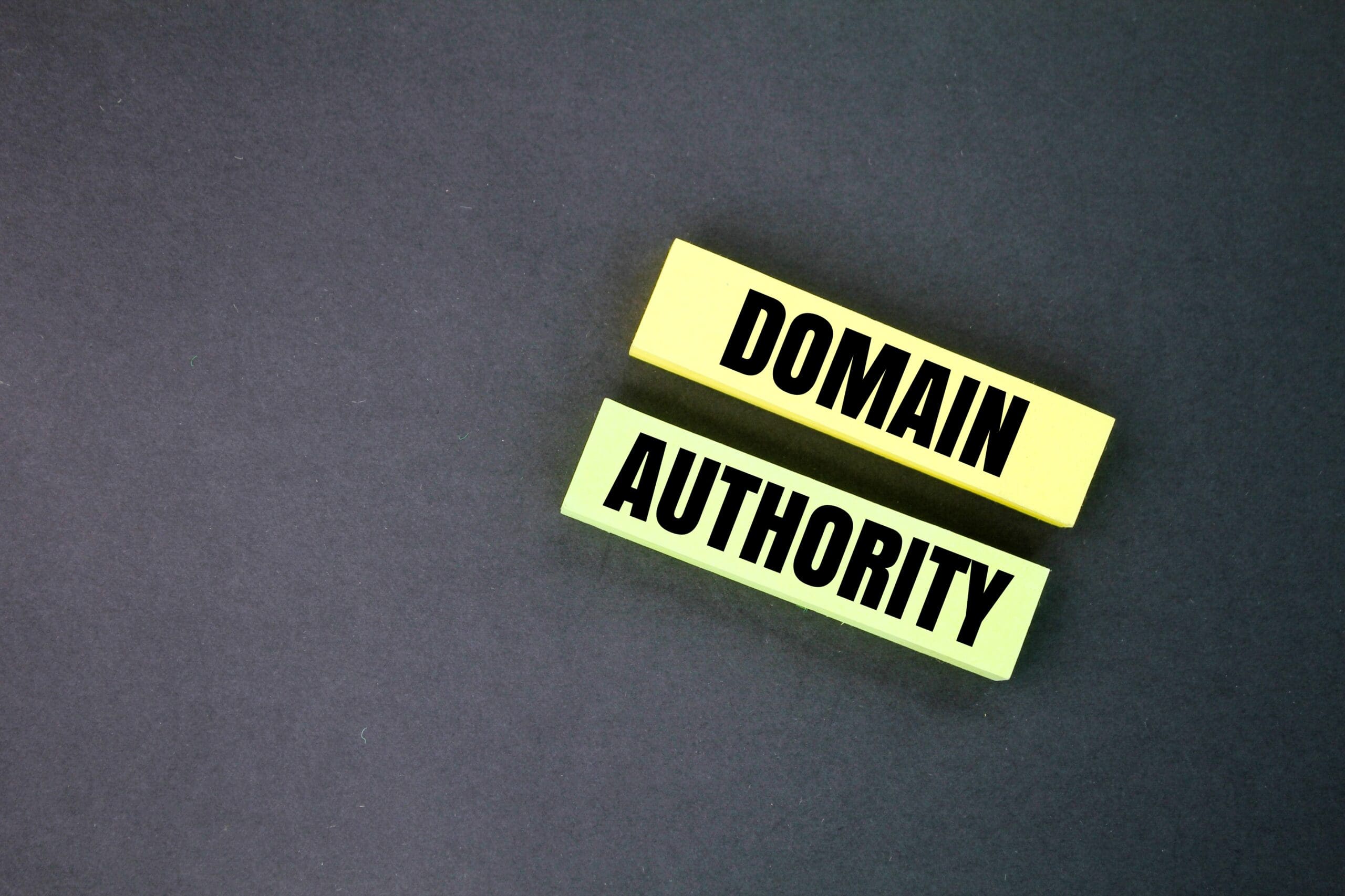Table of Contents
Did you know websites with strong domain authority (DA) consistently dominate search results? It’s not just luck—it’s a result of strong domain authority (DA). For many website owners, improving DA feels like cracking a secret code. You might even be asking yourself, “Is it really that important?”
The truth is, if you want better visibility, more organic traffic, and a trustworthy online presence, domain authority matters. But don’t worry, boosting your DA isn’t rocket science. It’s about taking consistent, actionable steps to show search engines—and your audience—that your site is worth their attention.
This Guide by Wonkrew will walk you through 10 proven steps to increase your Domain Authority, helping your site rank higher and build trust online.
What is Domain Authority?
Domain authority (DA) is a metric developed by Moz that predicts how well a website will rank on search engine result pages (SERPs). The DA score ranges from 1 to 100, with higher scores indicating a greater ability to rank. It is calculated based on several factors, including the quality of backlinks, content relevance, and overall website structure.
While domain authority is not a ranking factor used by Google, it is widely regarded as a reliable measure of a website’s credibility and trustworthiness. Websites with high DA scores tend to perform better in organic search rankings, making it a critical metric for SEO strategies.
You can check your DA score using tools like a domain authority checker tool or a website trust score checker to track your progress and identify areas for improvement.
10 Proven Steps to Improve Domain Authority
Now that you understand what domain authority is, let’s explore 10 proven steps to increase it. These actionable tips will help you boost your website’s performance and credibility over time.
1. Build High-Quality Backlinks
Backlinks from reputable and high-authority websites are the most important factor in improving your DA. When respected websites link to your content, search engines see your site as trustworthy.
How to Do It:
- Guest posts on authoritative websites.
- Collaborate with influencers in your niche.
- Create shareable content like infographics, videos, and guides.
Use tools like Moz or Ahrefs to identify high-quality backlink opportunities through a domain rating checker.
2. Create Outstanding Content
Content is the backbone of SEO and DA improvement. High-quality, relevant content attracts visitors and encourages other websites to link to your site.
Best Practices:
- Write long-form, in-depth blog posts that solve problems.
- Use engaging headlines and subheadings.
- Keep your content updated and accurate.
Good content naturally improves your DA and boosts your website trust score over time.
3. Optimise Your On-Page SEO
On-page SEO ensures that search engines understand your website content, making it easier to rank.
Key Areas to Focus On:
- Include relevant keywords in titles, meta descriptions, and headers.
- Optimise images by using alt text.
- Create internal links to other pages on your site.
On-page SEO not only helps in ranking but also improves user engagement.
4. Strengthen Technical SEO
A technically sound website performs better in search rankings. Technical SEO focuses on improving the infrastructure of your site to ensure smooth functioning. Use tools like Google PageSpeed Insights and Screaming Frog to offer more value, and to in find common issues
Common Issues:
- Slow page loading times.
- Broken links.
- Mobile-unfriendly designs.
- Lack of HTTPS security.
Improving technical SEO can also raise your score on a website authority checker.
5. Conduct Regular Backlink Audits
Not all backlinks are beneficial. Toxic backlinks from spammy or irrelevant websites can hurt your DA score. Conduct regular backlink audits to identify and remove harmful links.
Steps to Follow:
- Use tools like SEMrush or Moz to audit backlinks.
- Disavow harmful links using Google Search Console.
Cleaning up toxic backlinks helps protect and improve your domain authority.

6. Enhance User Experience (UX)
Search engines prioritise websites that deliver a seamless user experience. A well-designed, easy-to-navigate site encourages visitors to stay longer, which positively impacts your DA.
Tips for Better UX:
- Improve site navigation to make it intuitive.
- Optimise your site for mobile devices.
- Minimise pop-ups and distractions.
A good UX also contributes to an improved website trust score.
7. Focus on Internal Linking
Internal linking connects pages within your website, helping search engines and visitors navigate your site more effectively.
How to Implement:
- Link related blog posts and pages together.
- Use descriptive anchor text that includes relevant keywords.
- Avoid overloading a single page with links.
Internal linking distributes link equity and improves your site’s crawlability.
8. Increase Social Media Engagement
Social signals, like shares and likes on social media platforms, can indirectly influence your DA by increasing your content’s visibility.
How to Leverage Social Media:
- Share your content regularly on platforms like LinkedIn, Twitter, and Facebook.
- Use engaging captions and visuals to attract readers.
- Add social sharing buttons to your blog posts.
Social engagement encourages more visitors to discover and share your content.
9. Publish Regularly and Consistently
Publishing content consistently helps maintain your site’s relevance and authority. Search engines prefer sites that are regularly updated.
How to Stay Consistent:
- Create a content calendar to plan topics in advance.
- Update older content to keep it fresh.
- Focus on publishing quality over quantity.
A regular publishing schedule improves your chances of ranking higher on a domain authority checker tool.
10. Be Patient and Persistent
Improving your domain authority takes time and consistent effort. DA changes gradually as your website gains credibility.
Track Your Progress:
- Use tools like Moz’s domain authority checker to monitor improvements.
- Set realistic short-term and long-term goals.
- Celebrate small wins to stay motivated.
Patience and persistence are key to increasing your DA effectively.
Why Improving Domain Authority Matters
A higher domain authority can lead to:
- Better search engine rankings.
- Increased organic traffic.
- Greater trust among users and potential customers.
At Wonkrew, the best digital marketing agency in Chennai, we help businesses enhance their website trust score and achieve measurable growth through tailored SEO strategies. Whether you’re just starting or looking to take your site to the next level, our team can guide you every step of the way.
Conclusion:
Improving your domain authority is a combination of content quality, technical optimisation, and consistent effort. By following these 10 proven steps, you’ll set a strong foundation for your website’s success.
Ready to boost your domain authority and grow your online presence? Contact Wonkrew today, and let’s make it happen!
Frequently Asked Questions (FAQ’s)
1. How do I increase my website domain authority?
Focus on high-quality content, secure backlinks from authoritative sites, optimise on-page SEO, improve site speed, ensure mobile-friendliness, and maintain consistent engagement.
2. Is 25 domain authority good?
No. A domain authority of 25 is moderate. It’s good for newer sites but requires improvement through quality backlinks and SEO efforts to compete with stronger competitors.
3. How to increase backlinks?
Create shareable content, engage in guest blogging, collaborate with influencers, use broken link-building strategies, and promote content on forums and social media platforms for organic backlinks.
4. How to increase DA and DR?
Enhance website SEO, build quality backlinks, regularly update content, fix technical issues, and establish niche authority through consistent, high-value content and credible collaborations.
5. What is a good average domain authority?
Domain authority scores vary by industry, but generally, a score of 40-50 is good, 50-60 is strong, and 60+ is excellent for competitive niches.

